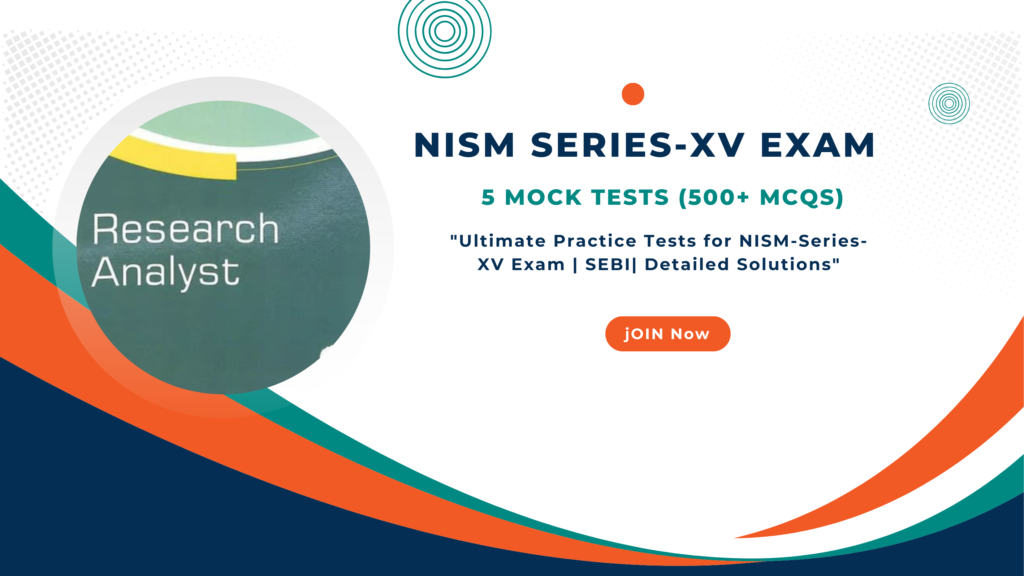There’s a growing demand for skilled research analysts across various industries, and this guide will help you navigate the steps to become one. By understanding the important skills, education, and experience required for this role, you can enhance your chances of success in the competitive job market. This post will provide you with valuable insights into the responsibilities of a research analyst, the tools you need to master, and tips for landing your ideal position. Let’s examine into how you can commence on this rewarding career path and make a meaningful impact in your field.
1. Obtain a relevant bachelor’s degree in finance, economics, or statistics. 2. Gain proficiency in data analysis tools like Excel and SQL. 3. Pursue internships to gain practical experience in analysis. 4. Develop strong analytical and critical thinking skills. 5. Consider obtaining a master’s degree or professional certifications. 6. Apply for entry-level research analyst positions to start career.

What is a Research Analyst?
For anyone considering a career in data-driven decision-making, understanding the role of a research analyst is crucial. A research analyst gathers, interprets, and analyzes data to provide insights that help companies make informed decisions. By using quantitative and qualitative research methods, analysts play a pivotal role in guiding business strategies and investments.
Definition and Role
What defines a research analyst is their ability to transform complex data into actionable insights. They study market trends, company performance, and other economic factors to identify opportunities and risks. Your role may involve preparing reports, conducting surveys, and presenting findings to stakeholders to facilitate data-driven decision-making.
Types of Research Analysts
Types of research analysts vary depending on the industries they serve, as well as the methodologies they employ. Here’s a breakdown of the most common types of research analysts:
| Type | Description |
| Market Research Analyst | Focuses on consumer preferences and market trends. |
| Financial Analyst | Examines financial data for investment decisions. |
| Data Analyst | Interprets complex datasets to uncover insights. |
| Policy Analyst | Researches and evaluates governmental policies. |
| Business Analyst | Aligns data insights with business operations. |
The types of research analysts you can become are diverse and tailored to different sectors. Each role comes with its own set of responsibilities and required skill sets. Understanding these distinctions can help you target your career path effectively. Consider the following types of research analysts:
- Market Research Analyst
- Financial Analyst
- Data Analyst
- Policy Analyst
- Business Analyst
After identifying your interests and strengths in these areas, you can choose the path that aligns best with your career goals.
Steps to Become a Research Analyst
It is imperative to follow a structured approach to become a successful research analyst. Start by acquiring the appropriate education, develop relevant skills, and gain practical experience to enhance your qualifications. Ensure that you stay updated on industry trends and advancements to increase your competitiveness in the job market. By taking these deliberate steps, you will be well-prepared for a rewarding career as a research analyst.
Educational Requirements
Assuming you want to begin your journey as a research analyst, acquiring a bachelor’s degree in a relevant field such as finance, economics, or statistics is imperative. An advanced degree can further bolster your prospects, particularly in specialized areas of research. Additionally, some employers may prefer candidates with a strong academic background in quantitative analysis or data interpretation.
Relevant Skills and Qualifications
Skills needed for a research analyst role are diverse and heavily focused on analytical techniques and problem-solving abilities. Being proficient in statistical software, data management, and having excellent communication skills will enhance your qualifications significantly.
Relevant skills include data analysis, critical thinking, and proficiency in software tools like Excel or R. Additionally, you should be adaptable and detail-oriented, exhibiting strong organizational skills to handle multiple projects simultaneously. Familiarity with financial modeling and effective presentation abilities can greatly improve your desirability in this competitive field.
Gaining Experience
Even as you pursue your education, gaining relevant experience through internships or entry-level positions can significantly boost your career trajectory. Look for opportunities that allow you to apply your analytical skills in real-world scenarios, enabling you to build a solid foundation for your future role as a research analyst.
Steps to gain experience include applying for internships or volunteer positions in research roles, attending workshops or seminars to expand your knowledge network, and seeking mentorship from seasoned professionals in the field. These opportunities will not only complement your educational background but also provide you with invaluable insights into the industry, making you a more attractive candidate.
Tips for Aspiring Research Analysts
Once again, to thrive as a research analyst, consider the following tips to enhance your skills and employability:
- Strengthen your analytical and critical thinking skills.
- Master relevant software tools such as Excel and statistical analysis programs.
- Develop your communication skills for effective reporting.
- Stay informed on industry trends and market dynamics.
Knowing these will help you stand out in a competitive job market.
Networking and Professional Development
Any aspiring research analyst should focus on building professional relationships within the industry. Attend conferences, seminars, and workshops to meet others in your field. Don’t hesitate to join relevant online forums and platforms, where you can exchange ideas and seek mentorship. These connections can lead to valuable opportunities and insights that enhance your career.
Continuous Learning
If you wish to excel as a research analyst, prioritize continuous learning to stay ahead of industry changes. Developing a habit of seeking new knowledge through courses, webinars, and self-study ensures you remain relevant and proficient in your field.
Development in your role means adapting to new tools and methodologies. Engage in online courses that focus on data analysis, management, or specific research techniques. Additionally, subscribe to academic journals and follow industry experts, which will provide insights into emerging trends and best practices. This commitment to lifelong learning will empower you to contribute effectively and innovatively in your role.
Factors to Consider Before Pursuing a Career as a Research Analyst
To begin on a career as a research analyst, it’s vital to evaluate various factors that influence your success and satisfaction in this role. Consider the following:
- Your interest in data and analytics
- The educational qualifications required
- Potential career growth opportunities
- The necessary skills and expertise
- Your preferred industry and work environment
Thou have a significant role to play in ensuring that you are well-prepared for the challenges ahead.
Job Market and Demand
One of the key aspects to look into is the job market and demand for research analysts in your area. With businesses increasingly relying on data to make informed decisions, the demand for skilled analysts continues to rise. This trend suggests promising employment opportunities, making it a viable career choice.
Required Tools and Technology
Factors affecting your efficiency and effectiveness as a research analyst include the tools and technology you utilize. Familiarity with statistical software and data visualization tools is vital, as they enable you to analyze and present data meaningfully.
Before you look into this career, it’s wise to assess which specific software and technologies are prevalent in your target industry. Proficiency in programs such as Excel, R, Python, SPSS, and Tableau can significantly enhance your analytical capabilities. Additionally, staying updated with emerging technologies and methodologies will allow you to maintain a competitive edge and produce insightful research outcomes.
Pros and Cons of Being a Research Analyst
Keep in mind that being a research analyst has its advantages and disadvantages. Below is a breakdown of the pros and cons you might encounter in this career.
| Pros | Cons |
|---|---|
| High demand for skills | Often requires long hours |
| Opportunity for growth | Can involve repetitive tasks |
| Diverse industries | Pressure to meet deadlines |
| Strong analytical skills development | Potentially limited client interaction |
| Competitive salary | Can be isolating work environment |
Advantages of the Career
Now, the advantages of being a research analyst are significant. You’ll gain versatile skills that are highly sought after in various industries, providing ample job opportunities. Additionally, this career path allows for professional growth and development, enhancing your analytical abilities. As you explore diverse fields, you may find new interests and expand your understanding of market trends.
Challenges and Disadvantages
Prospective research analysts should also consider the challenges associated with the role. You may face long hours and the pressure of tight deadlines, which can lead to a frantic pace in your work environment.
Plus, the repetitive nature of some tasks may lead to feelings of monotony. Additionally, working in an isolating environment can limit your interactions with colleagues, which may affect collaboration and creativity. Balancing these challenges with the many advantages will help you make an informed decision about your career as a research analyst.
Importance of Mock Tests in Succeeding the RA Exam
Your preparation for the Research Analyst exam will significantly benefit from incorporating mock tests into your study routine. These tests simulate the actual exam environment, allowing you to familiarize yourself with the format, manage your time effectively, and identify areas where you need improvement. Engaging in frequent mock tests helps build your confidence and reinforces key concepts, ultimately increasing your chances of success.
Visit the site below for the Mock Test for RA :-
Benefits of Practice Tests
Mock tests provide an opportunity to assess your knowledge and grasp of the subject matter. By taking these practice exams, you can pinpoint your weaknesses and focus your studies more effectively. Regular practice will also enhance your test-taking strategies, leading to better performance on the actual exam day.
Mock Test Link
Strategies for Effective Studying
To maximise your study efforts, it’s imperative to adopt effective strategies that align with your learning style. Consider breaking your study sessions into smaller, focused intervals to maintain concentration and reduce fatigue. Incorporate active learning techniques by explaining concepts to someone else or teaching them, which reinforces your understanding.
A well-structured study plan is key to your success as a research analyst. Start by outlining the topics you need to cover and allocate adequate time for each subject. Additionally, utilize various resources, such as textbooks, online courses, and forums, to enrich your understanding. Keep track of your progress and adjust your study tactics based on your performance in mock tests, ensuring that you remain aligned with your goals.
Conclusion
To wrap up, becoming a research analyst requires a solid foundation in analytical skills and subject matter expertise. You should pursue relevant education, such as a degree in finance, economics, or data science, and gain practical experience through internships or entry-level positions. Continuously developing your skills in data analysis software and research methodologies will enhance your employability. Additionally, networking and staying informed about industry trends will further position you for success in this dynamic field. Commit to lifelong learning and adaptability, and you’ll be well on your way to a rewarding career as a research analyst.



This website, you can discover a great variety of online slots from leading developers.
Visitors can experience traditional machines as well as modern video slots with stunning graphics and interactive gameplay.
Whether you’re a beginner or a casino enthusiast, there’s something for everyone.
play aviator
The games are instantly accessible round the clock and optimized for desktop computers and tablets alike.
You don’t need to install anything, so you can get started without hassle.
Site navigation is easy to use, making it quick to browse the collection.
Register now, and discover the world of online slots!